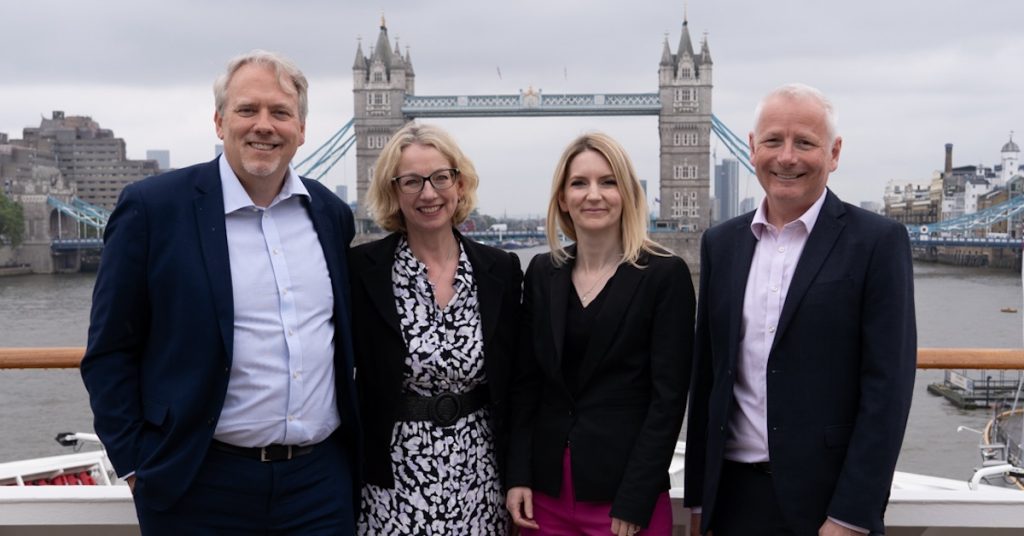In a recent gathering, the UK government highlighted the cruise sector’s pivotal role in the nation’s tourism economy. The meeting, attended by the tourism minister and industry representatives, underscored the cruise industry’s significant contribution to local economies and communities.
Economic Impact on Coastal Regions
The cruising industry is an essential part of the UK’s tourism landscape, significantly benefiting coastal areas and isolated communities. The sector brings millions in revenue, supporting local businesses such as restaurants, hotels, and tourist attractions. By providing unique access to remote regions, cruises enhance the visibility and viability of these destinations, demonstrating their economic importance.
Minister of State for Media, Tourism, and Creative Industries, Julia Lopez, emphasised the sector’s role in showcasing Britain’s best while contributing substantially to the economy. Her remarks followed a briefing with industry body Clia and other stakeholders, highlighting ongoing efforts to maintain the sector’s growth and sustainability.
Innovation and Sustainability in Cruising
Innovation within the cruise industry is crucial for its continued success, particularly in terms of sustainability. Ponant’s Le Dumont d’Urville is a leading example, equipped with catalytic systems to cut nitrogen oxide emissions, showcasing the industry’s commitment to eco-friendly operations.
Such technological advancements are complemented by initiatives for reducing environmental impact, including shore power systems to minimise emissions when docked. These efforts align with broader industry trends toward more responsible tourism, setting benchmarks for future developments.
The Broader Economic Contributions
According to Clia data, a cruise passenger spends approximately £700 during a week-long cruise, directly benefitting the local economy. This figure highlights the economic potential of the industry to revitalise regions that host cruise calls.
The industry supports tens of thousands of jobs, from travel agents to hospitality workers, making it a cornerstone of the UK’s visitor economy. Its reach extends far beyond tourism revenue, embedding itself in the community fabric, driving growth in various sectors.
Future Prospects and Growth Opportunities
Looking forward, the sector is set to expand its footprint, with plans for more ports of call and diversified travel itineraries. Industry leaders such as Ponant are spearheading efforts, with ships visiting around 45 ports, enhancing the accessibility of distinctive locales.
This expansion not only offers new opportunities for passengers but also for local economies, which stand to gain from increased visitor numbers. As the industry grows, so too does its influence and ability to support local development initiatives.
Government and Industry Collaboration
Collaboration between the government and industry is vital for the continued success of the cruise sector. Recent meetings have reinforced commitments to support the industry’s growth, with both entities recognising the mutual benefits of a thriving cruise industry.
This partnership is exemplified by shared initiatives to bolster infrastructure and invest in sustainable practices, ensuring the longevity of the cruise market. Such collaborations are critical in navigating future challenges and capitalizing on new opportunities.
The government’s proactive stance, as evidenced by Julia Lopez’s involvement, underscores the political backing the cruise industry enjoys, further solidifying its place as an integral part of UK tourism.
Challenges and Solutions in the Cruise Industry
Despite its many benefits, the cruise industry faces challenges, including environmental concerns and fluctuating market demands. Addressing these requires a collaborative approach that leverages technological advances and strategic planning.
The adoption of sustainable technologies and practices is vital in overcoming these hurdles, ensuring the cruise sector remains resilient and adaptable. As the market evolves, continuous innovation will be key to maintaining its competitive advantage.
Industry initiatives are increasingly focusing on sustainability, with companies investing in cleaner technologies and practices to meet regulatory standards and consumer expectations.
These efforts are complemented by strategic collaborations aimed at enhancing economic impact while minimizing environmental footprint, illustrating a comprehensive approach towards achieving long-term sustainability.
The Cruise Industry’s Role in Revitalising Tourism
The cruise sector continues to play a crucial role in revitalising the UK’s tourism market, particularly post-pandemic. With a strong rebound in passenger numbers, the industry is poised to contribute significantly to economic recovery.
Through innovative offerings and expanded travel itineraries, cruises are attracting a broad demographic, helping to rejuvenate interest in UK travel destinations.
The cruise industry’s dynamic approach and commitment to sustainability position it as a leader in the tourism sector, providing a robust framework for ongoing growth and success.
The cruise industry’s contributions to the UK tourism sector are indisputable. By fostering economic growth, supporting local communities, and embracing sustainable practices, it remains a vital component of the nation’s tourism landscape. Ongoing collaborations between industry players and the government are essential to navigating future challenges and seizing growth opportunities.

